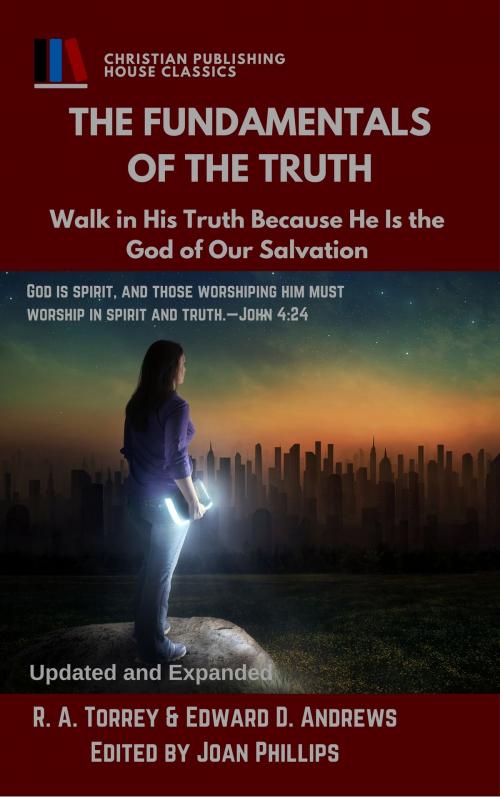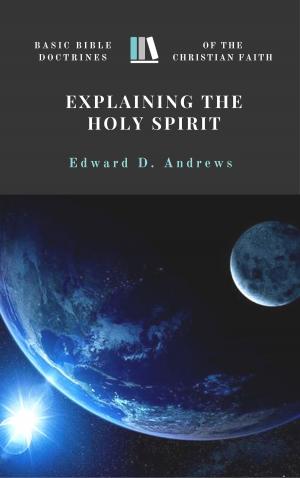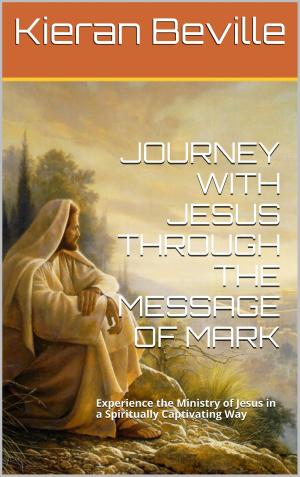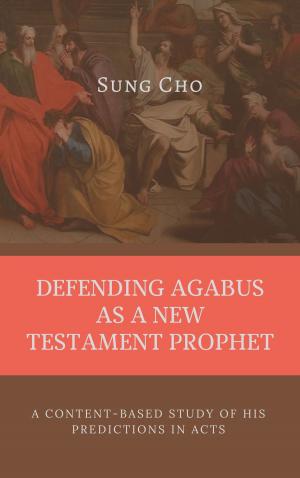THE FUNDAMENTALS OF THE TRUTH
Walk in His Truth Because He Is the God of Our salvation, [Updated and Expanded]
Nonfiction, Religion & Spirituality, Bible & Bible Studies, Old Testament, Criticism & Interpretation| Author: | R. A. Torrey, Edward D. Andrews | ISBN: | 1230001312928 |
| Publisher: | Christian Publishing House | Publication: | August 16, 2016 |
| Imprint: | Language: | English |
| Author: | R. A. Torrey, Edward D. Andrews |
| ISBN: | 1230001312928 |
| Publisher: | Christian Publishing House |
| Publication: | August 16, 2016 |
| Imprint: | |
| Language: | English |
Historical criticism, also known as the historical-critical method or higher criticism, is a branch of literary criticism that investigates the origins of ancient text in order to determine authorship, date of writing and historical accuracy of the Bible, in the light of archaeology and history.
Did Moses really pen the first five books of the Bible, or were they written centuries later by multiple writers as Bible critics say? Did Isaiah from the eighth-century pen the prophetic book that bears his name, or were there three authors who wrote the book centuries later? Did Daniel of the sixth century write the book of Daniel, or was it penned in the second century B.C.E., as the critics suppose? What about the Gospels, can they be trusted? Does the Bible contradict itself? Is it full of errors and mistakes? Did the miracles actually happen? Is the New Testament history or myth?
Do these critics have grounds for challenging the Bible’s historical truthfulness? Higher criticism has opened the floodgates of false and misleading scholarly works whose effect has been to undermine people’s confidence in the Bible. The authors herein have offered us a defense of historic Christianity that helped define conservative Protestant Christianity. They have given us responses so that the reader can defend the Word of God against attacks from Bible critics, liberal theology, and atheists. The authors herein will expose some of the outstanding weaknesses of modern higher criticism. How do the Bible critics stand up in the light of these conservative Bible scholars?
True, higher criticism has endured for centuries now and has seemed to flourish going into the 21st century. However, this is because it harmonizes so well with today’s liberal, progressive, secular way of thinking, not because it has proven anything. There is absolutely no solid proof for the claims of higher criticism. Archaeology developed in Europe during the nineteenth century and had since become a discipline, which is respected and practiced across the world. However, while we have found tens of thousands of copies of the Bible books, some dating within decades of the originals, no supposed sources that were behind the Pentateuch or the book of Isaiah have ever been found. Where is this so-called Q source, i.e., a hypothetical written collection of Jesus's sayings, which is supposedly the “common” material, found in the Gospels of Matthew and Luke but not in the Gospel of Mark? These authors defend the Bible as the fully inerrant, inspired, authoritative Word of God and we can join their fight against destructive higher criticism and such pseudoscientific theories.
Historical criticism, also known as the historical-critical method or higher criticism, is a branch of literary criticism that investigates the origins of ancient text in order to determine authorship, date of writing and historical accuracy of the Bible, in the light of archaeology and history.
Did Moses really pen the first five books of the Bible, or were they written centuries later by multiple writers as Bible critics say? Did Isaiah from the eighth-century pen the prophetic book that bears his name, or were there three authors who wrote the book centuries later? Did Daniel of the sixth century write the book of Daniel, or was it penned in the second century B.C.E., as the critics suppose? What about the Gospels, can they be trusted? Does the Bible contradict itself? Is it full of errors and mistakes? Did the miracles actually happen? Is the New Testament history or myth?
Do these critics have grounds for challenging the Bible’s historical truthfulness? Higher criticism has opened the floodgates of false and misleading scholarly works whose effect has been to undermine people’s confidence in the Bible. The authors herein have offered us a defense of historic Christianity that helped define conservative Protestant Christianity. They have given us responses so that the reader can defend the Word of God against attacks from Bible critics, liberal theology, and atheists. The authors herein will expose some of the outstanding weaknesses of modern higher criticism. How do the Bible critics stand up in the light of these conservative Bible scholars?
True, higher criticism has endured for centuries now and has seemed to flourish going into the 21st century. However, this is because it harmonizes so well with today’s liberal, progressive, secular way of thinking, not because it has proven anything. There is absolutely no solid proof for the claims of higher criticism. Archaeology developed in Europe during the nineteenth century and had since become a discipline, which is respected and practiced across the world. However, while we have found tens of thousands of copies of the Bible books, some dating within decades of the originals, no supposed sources that were behind the Pentateuch or the book of Isaiah have ever been found. Where is this so-called Q source, i.e., a hypothetical written collection of Jesus's sayings, which is supposedly the “common” material, found in the Gospels of Matthew and Luke but not in the Gospel of Mark? These authors defend the Bible as the fully inerrant, inspired, authoritative Word of God and we can join their fight against destructive higher criticism and such pseudoscientific theories.















